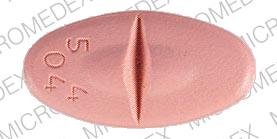Teveten Side Effects
Generic name: eprosartan
Medically reviewed by Drugs.com. Last updated on Mar 16, 2023.
Note: This document contains side effect information about eprosartan. Some dosage forms listed on this page may not apply to the brand name Teveten.
Applies to eprosartan: oral tablet.
Warning
Oral route (Tablet)
Drugs that act on the renin-angiotensin system can cause injury or death to the developing fetus when used during the second and third trimesters. When pregnancy is confirmed, discontinue treatment immediately.
Serious side effects of Teveten
Along with its needed effects, eprosartan (the active ingredient contained in Teveten) may cause some unwanted effects. Although not all of these side effects may occur, if they do occur they may need medical attention.
Check with your doctor immediately if any of the following side effects occur while taking eprosartan:
Less common
- Burning or painful urination or changes in urinary frequency
- cough
- fever
- sore throat
Rare
- Dizziness, lightheadedness, or fainting
- swollen face, lips, limbs, or tongue
Other side effects of Teveten
Some side effects of eprosartan may occur that usually do not need medical attention. These side effects may go away during treatment as your body adjusts to the medicine. Also, your health care professional may be able to tell you about ways to prevent or reduce some of these side effects.
Check with your health care professional if any of the following side effects continue or are bothersome or if you have any questions about them:
Less common or rare
- Abdominal or stomach pain
- joint pain
- unusual tiredness
For Healthcare Professionals
Applies to eprosartan: oral tablet.
General
The most common adverse reactions were headache and unspecific gastrointestinal complaints.[Ref]
Nervous system
Very common (10% or more): Headache (up to 11%)
Common (1% to 10%): Dizziness
Frequency not reported: Ataxia, migraine, neuritis, paresthesia, somnolence, tremor, vertigo, tinnitus[Ref]
Gastrointestinal
Common (1% to 10%): Unspecific gastrointestinal complaints, abdominal pain, diarrhea, dyspepsia
Frequency not reported: Constipation, dry mouth, esophagitis, flatulence, gastritis, gastroenteritis, gingivitis, nausea, periodontitis, toothache, vomiting[Ref]
Respiratory
Common (1% to 10%): Rhinitis, upper respiratory tract infection, pharyngitis, coughing, sinusitis, dyspnea, bronchitis
Frequency not reported: Asthma, epistaxis[Ref]
Other
Common (1% to 10%): Asthenia, injury, chest pain, fatigue, pain
Uncommon (0.1% to 1%): Facial edema
Frequency not reported: Substernal chest pain, peripheral edema, fever, influenza-like symptoms, malaise[Ref]
Musculoskeletal
Common (1% to 10%): Myalgia, arthralgia, back pain
Frequency not reported: Rigors, creatine phosphokinase increased, arthritis, arthritis aggravated, arthrosis, skeletal pain, tendinitis, leg cramps[Ref]
Cardiovascular
Common (1% to 10%): Palpitation, dependent edema
Uncommon (0.1% to 1%): Hypotension
Frequency not reported: Hot flushes, angina pectoris, bradycardia, ECG abnormal, ECG specific abnormal, extrasystoles, atrial fibrillation, tachycardia, peripheral ischemia[Ref]
Hematologic
Common (1% to 10%): Neutrophils 1500/mm3 or less
Uncommon (0.1% to 1%): Hemoglobin decreased greater than 20%, WBC count of 3000/mm3 or less, platelets 100 x 10(9)/L or less
Frequency not reported: Anemia, leukopenia[Ref]
Metabolic
Common (1% to 10%): Hypertriglyceridemia
Uncommon (0.1% to 1%): Potassium 5.6 mmol/L or greater
Frequency not reported: Alcohol intolerance, anorexia, diabetes mellitus, gout, hypercholesterolemia, hyperglycemia, hyperkalemia, hypokalemia, hyponatremia[Ref]
Dermatologic
Common (1% to 10%): Allergic skin reactions
Uncommon (0.1% to 1%): Angioedema
Frequency not reported: Purpura, eczema, furunculosis, pruritus, rash, maculopapular rash, sweating increased[Ref]
Immunologic
Common (1% to 10%): Viral infection
Uncommon (0.1% to 1%): Hypersensitivity
Frequency not reported: Herpes simplex, otitis externa, otitis media[Ref]
Renal
Common (1% to 10%): BUN increased
Uncommon (0.1% to 1%): Creatinine increased
Frequency not reported: Renal calculus
Postmarketing reports: Impaired renal function, renal failure[Ref]
Genitourinary
Common (1% to 10%): Urinary tract infection
Frequency not reported: Glycosuria, albuminuria, cystitis, hematuria, micturition frequency, polyuria, urinary incontinence[Ref]
Psychiatric
Common (1% to 10%): Depression
Frequency not reported: Anxiety, insomnia, nervousness[Ref]
Hepatic
Uncommon (0.1% to 1%): ALT greater than 3.5 times the upper limit of normal
Frequency not reported: Serum glutamic oxaloacetic transaminase (SGOT) increased, serum glutamic pyruvic transaminase (SGPT) increased, ALT increased, AST increased, alkaline phosphatase increased[Ref]
Ocular
Frequency not reported: Conjunctivitis, vision abnormal, xerophthalmia[Ref]
More about Teveten (eprosartan)
- Check interactions
- Compare alternatives
- Drug images
- Side effects
- Dosage information
- During pregnancy
- Drug class: angiotensin receptor blockers
- Breastfeeding
Patient resources
Related treatment guides
References
1. Product Information. Teveten (eprosartan). SmithKline Beecham. 2001;PROD.
2. Cerner Multum, Inc. UK Summary of Product Characteristics.
3. Cerner Multum, Inc. Australian Product Information.
Further information
Always consult your healthcare provider to ensure the information displayed on this page applies to your personal circumstances.
Some side effects may not be reported. You may report them to the FDA.

